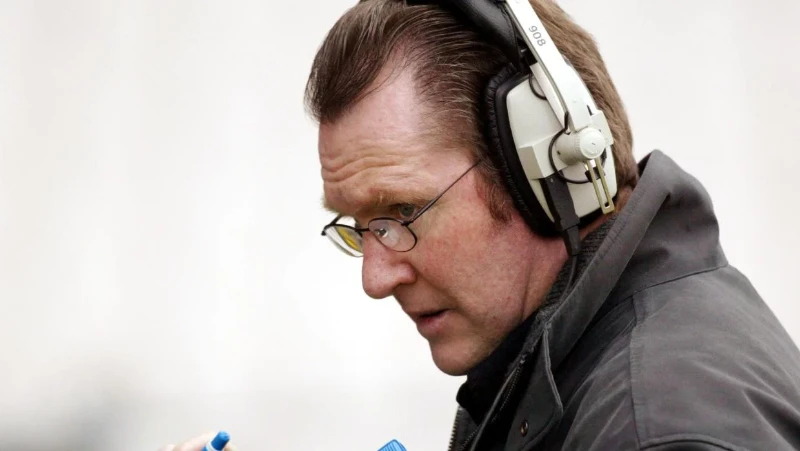Former All Blacks Captain Stu Wilson Passes Away at 70

Stu Wilson, a former All Blacks captain, has died at the age of 70.
Wilson, who later served as a commentator, made 85 All Blacks appearances (34 tests) between 1976 and 1983. He died during the weekend in Tauranga.
Wilson, a silky-skilled winger from Gore, scored 50 tries in the black jersey and captained the national team on its 1983 tour of Scotland and England.
Wilson, known for his sense of humour and flamboyant personality, made his debut against a Buenos Aires selection when he was 22 years old before making his test debut against France in Toulouse the following year.
Wilson, regarded as one of the best wingers to represent the All Blacks, unexpectedly departed from test rugby in 1984 when still at the pinnacle of his game. His 19 test tries were a record until Sir John Kirwan surpassed it in 1988.
Murray Mexted, a former All Blacks teammate, was taken aback by the news after having a coffee with Wilson the morning of his death.
"He was just his normal self, chirpy with a spring in his step, so it's a hell of a shock," Mexted told the broadcaster.
Mexted has known Wilson since they were youngsters when the two played for Wellington and the All Blacks.
"He was high-spirited in a charming way. You never had a dull Stu Wilson, and he lived life with a smile on his face."
Mexted claimed there were few offensive players like Wilson.
"He was elusive and silky, as calm as a cucumber on the field. We nicknamed him Super Stu because he was a great rugby player.
"He just seemed to slide through gaps effortlessly, and he was so good at it that they moved him into the centre at one stage."
David Campese, a Wallabies star, made his Test debut against Wilson in 1982 and paid tribute on Monday.
"When I first started playing, Stu was the world's best wing player. He was the man we all aspired to be: brash, bright, lightning-fast, and phenomenally intelligent," Campese told Planet Rugby.
"As a player, Stu made rugby look effortless and won tremendous respect as captain in 1983. He could swerve and beat anyone, as well as incredible speed, intelligence, and power, allowing him to break through tacklers and become a try-scoring machine.
"I made my debut against him in 1982 at the Bledisloe in Christchurch, scoring my first test try against him. We became good friends while playing invitation games. I still have his jersey from that first test match, and it's one of my most prized belongings since he represented the quality I aimed to achieve."
Wilson also appeared for Wellington 89 times between 1975 and 1984, scoring 54 tries.
Wilson worked as a commentator and presenter, as well as in real estate and charity organizations.
"A doctor here called Doctor [Kok] Chow saved my life when he put a stent in one of the arteries in my heart," Wilson told me at the time.
"I see him walking the wards as well, so I always tell him, 'I like your job, mate. It's been nice; it's still standing.
That was one of the reasons Wilson expressed interest in the position, replying to an advertisement at a time when he had recently retired but still wanted to get out of the house a few times per week.
During the job interview, regional team leader Bruce Raynel inquired about his attitude toward receiving commands.
"All I want to be is a footsoldier, Bruce," he explained. "Go and do a job and come back, tick it off."
NZ Rugby chair David Kirk, who played with Wilson on the 1983 tour of England and Scotland, said Wilson would be sorely missed.
"Stu was one of the best wings ever to play the game and one of rugby's most memorable characters," Kirk added.
"He had a lighthearted attitude toward life but was deeply passionate and serious about representing his country."
"At his peak, he was practically unstoppable with the ball in hand and was revered by his peers and opponents around the world. We will miss him greatly and remember him warmly."
NZ Rugby chief executive Mark Robinson described Wilson as "ahead of his time."
"Stu was ahead of his time in the way he played what was in front of him and beat defenders in a variety of ways using his footwork, speed, and kick ahead," Robinson said.
"His flare and enthusiasm for the game influenced a generation. In retirement, he was a positive and respected voice in public rugby, and he remained involved with both his club and province. We extend our sympathies to his family and friends.